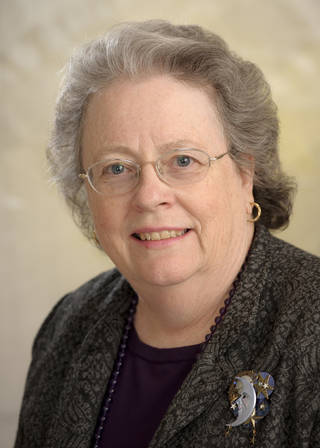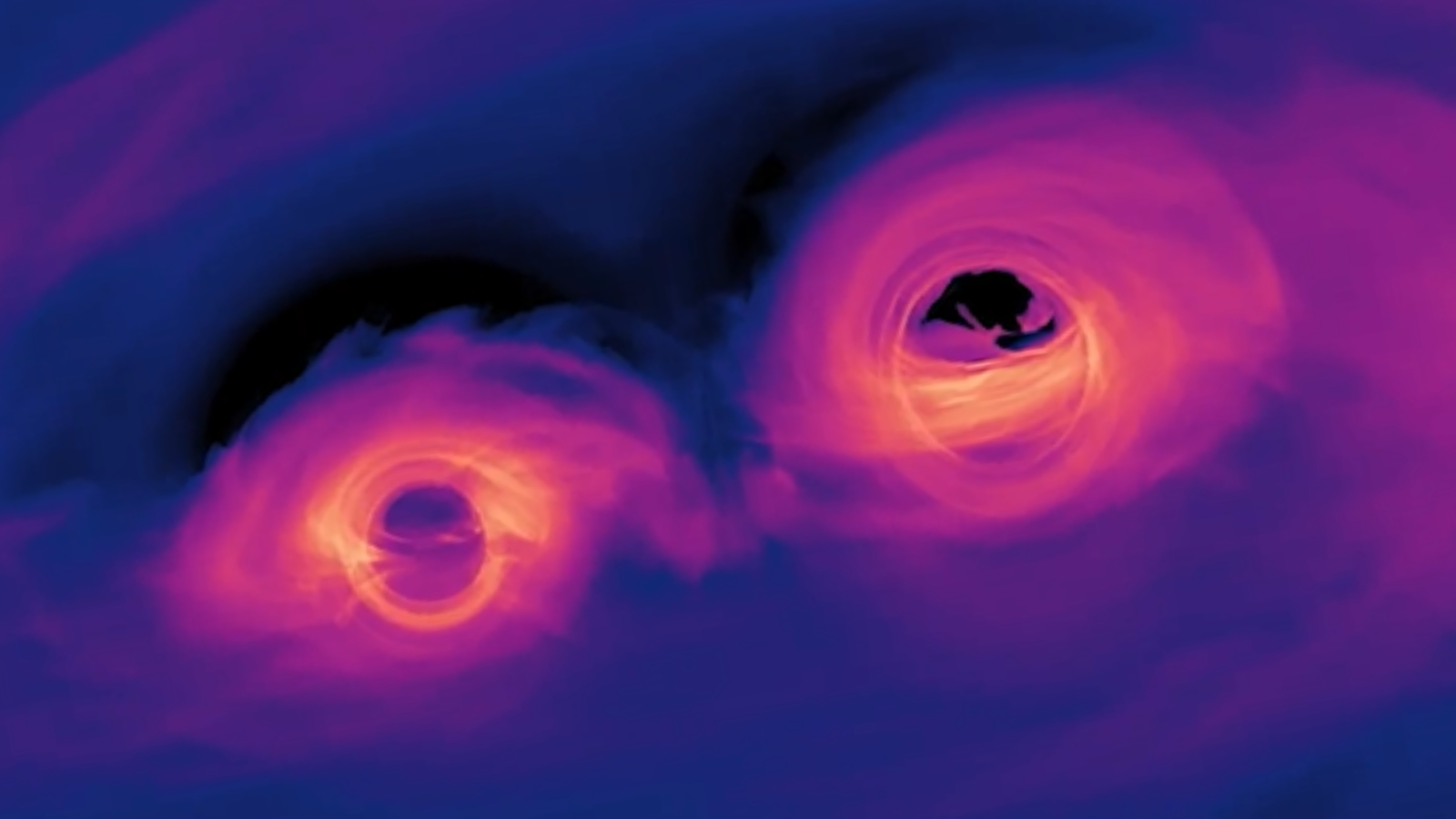Darwin Day: A Dialog between Science and Religion
Breaking space news, the latest updates on rocket launches, skywatching events and more!
You are now subscribed
Your newsletter sign-up was successful
Want to add more newsletters?

Delivered daily
Daily Newsletter
Breaking space news, the latest updates on rocket launches, skywatching events and more!

Once a month
Watch This Space
Sign up to our monthly entertainment newsletter to keep up with all our coverage of the latest sci-fi and space movies, tv shows, games and books.

Once a week
Night Sky This Week
Discover this week's must-see night sky events, moon phases, and stunning astrophotos. Sign up for our skywatching newsletter and explore the universe with us!

Twice a month
Strange New Words
Space.com's Sci-Fi Reader's Club. Read a sci-fi short story every month and join a virtual community of fellow science fiction fans!
"Ihave called this principle, by which each slight variation, if useful, ispreserved, by the term Natural Selection."
Charles Robert Darwin, 1809 -- 1882
"On The Origin of Species"
Darwin's198th Birthday will occur on Monday, February 12, 2007; it will also be the148th Anniversary of the publication of his famous book, On The Origin ofSpecies. The objective of Darwin Day Celebration is to encourage existinginstitutions worldwide, such as municipalities, public and private schools,colleges and universities, libraries, museums, churches, private organizationsand individuals to celebrate Science and Humanity every year, on, or near,February 12, Darwin's birthday!
"DarwinDay" began its life in 1995, the brainchild of Robert Stephens and fellowhumanist, Arthur Jackson who have watched their celebration evolve into"an International Celebration of Science and Humanity as well as ayear-round educational website. "The short term goal of the organizers isto increase awareness of Darwin Day and "build excitement" betweennow and 2009, the 200th anniversary of Darwin's birth, which program officialshope will be marked by global celebrations of Darwin's legacy, while"promoting understanding of science and critical inquiry within our globalcommunity."
Often,the mention of Darwin elicits discussions of science and religion. Recently,theologians and scientists have come together to discuss this tension inAmerican society, and how we might all work together to develop betterunderstanding of how science and religion can complement each other. TheAmerican Association for the Advancement of Science's DoSER (Dialog on Science,Ethics and Religion) conducted a series of workshops with leading theologiansand scientists regarding evolution and the social controversies surroundingteaching and learning about evolution in American schools, colleges anduniversities. Recently, AAAS published "TheEvolution Dialogues: Science, Christianity, and the Quest for Understanding"as a product of the DoSER workshops. "The Evolution Dialogs" is intended tospark conversations about evolution in homes, churches, schools andcommunities. In alternate chapters, it presents a description of thedevelopment of evolutionary theory from before Darwin to the present and therich and complex historical interaction of evolution and Christianity. Itfurther presents accounts of the nature of science and of Christian approachesto understanding and the history of life as revealed through the evolutionarysciences. "The Evolution Dialogs" is accessible to the public--it is not a densescholarly treatise. Rather, it is a resource for thoughtful discussions.
Ina similar vein, theologians have initiated similar discussions through amovement called "TheClergy Letter Project." Michael Zimmerman at Butler College leads TheClergy Letter Project. He states, "For too long, the misperception that scienceand religion are inevitably in conflict has created unnecessary division andconfusion, especially concerning the teaching of evolution. I wanted to let thepublic know that numerous clergy from most denominations have tremendousrespect for evolutionary theory and have embraced it as a core component ofhuman knowledge, fully harmonious with religious faith." Since 2004, more than10,000 theologians have signed the letter. This Sunday, February 11, more than500 churches will celebrate "Evolution Sunday" in honor of Charles Darwin and theunderstanding of the natural world that science provides.
Manyothers will also celebrate Darwin and his discoveries. You can find a listingof Darwin Daycelebrations on line at the Darwin Day website. There may be an event inyour community.
Breaking space news, the latest updates on rocket launches, skywatching events and more!
Whyis SETI Institute concerned with Darwin and evolution? Understanding theevolution of the universe--galaxies, stars, planets, and life--is at the heart ofour research. In Darwin's autobiography he states, "Everything in natureis the result of fixed laws." Discovering these "fixed laws"that govern the origin, nature and distribution of life is the core mission ofthe SETI Institute, and exploring change over time is the powerful theme thatunifies all of our work, from laboratory to classroom. The work of ourscientists working on the NASA Astrobiology Institute research team focuses onthe co-evolution of life and its planetary context, in projects that range fromstudies of life's emergence on early Earth to the habitability of planetsorbiting relatively cool M-stars. This project will directly impact theInstitute's search for evidence of life that, like us, is sufficiently complexto reflect upon its own origins. The evolution of complexity and intelligenceis a challenging research area, but one that can be probed scientifically, andInstitute research seeks to tease important insights out of both the fossilrecord and animal communication systems. Darwin would no doubt be fascinated!
Welive in a very special time. We are the first generation with the scientifictools necessary to explore a world that has grown beyond the confines of Earthsatmosphere. We seek evidence of life's origin at ocean bottom hot spots, in therocks and soils of Mars, and in the interstellar chemistry of our galaxy. Wealso seek evidence of intelligence by searching for signals from technologythat transmits from distant planets.
Whatmight be found can best be understood from a basis of self-knowledge. Where didwe come from? Where are we going? What else is out there, and how did itevolve? What will we become? Big questions to ponder on the birthday of a manwho helped us shape them

Edna DeVore is a science and astronomy educator and the former Director of Education and Public Outreach for the SETI Institute. She earned an undergraduate degree from the University of Pacific followed by a master's degree in instructional technology from San Jose State and a master's in astronomy from the University of Arizona. In 1992, Edna joined the SETI Institute, where she wrote features on space exploration, astrobiology and more, some of which appeared on Space.com. She was among the first principal investigators to propose projects to NASA's Office of Space Science and receive funding for educational programs. Edna went on to work on education and public outreach for NASA's Kepler space telescope and SOFIA flying telescope missions. Edna received numerous awards during her tenure at SETI, including NASA Honor Awards for her work on Kepler and SOFIA, and Aerospace Awareness Award for Women in Aerospace in 2005. Edna retired in 2013.
